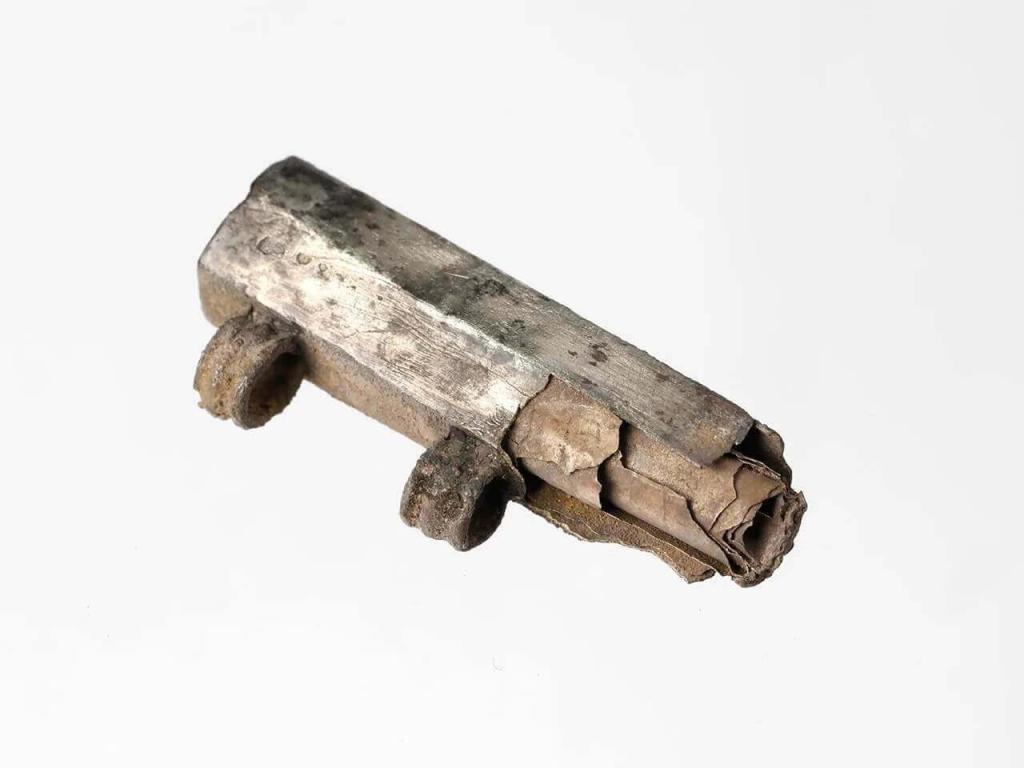Support Israel? OK, which Israel?

"We interrupt your regularly scheduled programme to bring you this..." Sorry if you were waiting for part 3 of the Coming of Jesus series, but what with all that's going on in the news lately, I felt that this needed to be written first.
"Support Israel's right to defend itself from terror."

If you've been on Facebook, or any other social media no doubt, I'm sure you will have seen (or even said) words to this effect in status' or memes. I keep seeing memes and images posted by people, often from Christians, about "supporting Israel" and each time it makes me stop and question that statement and/or sentiment. I question its accuracy, how biased or not the sources were, whether it's propaganda rather than truth. It makes me wonder about what view of God and theology that person holds to that enables Israel to get a 'free pass' as it were. There's images and videos being posted from both sides, but it seems that when there is something negative against Israel, it's called "propaganda" and staged/fake etc, but the other way around it is terrorism and self-defense by Israel. Then there's those who play the racism card, such as the image to the right, making people feel guilty of Anti-Semitism for not being a die-hard Zionist.
But what I'd really like to know is when did Christian's begin supporting any kind of violence or war? I realise the church has a long and bloody history - but is that really the Jesus way - Jesus the "prince of peace" (Isaiah 9:6)?
How about we do what Jesus taught and support efforts for peace, and not war; praying for our enemies and those who persecute, and not take sides, you know, like we're supposed to as Christ-followers.
"But I say to you, Love your enemies and pray for those who persecute you, so that you may be children of your Father in heaven; for he makes his sun rise on the evil and on the good, and sends rain on the righteous and on the unrighteous." – Matt 5:44-45
"Do not be overcome by evil, but overcome evil with good." – Rom 12:21
In the midst of all this though, there is one meme I've seen which seems to go against the grain, and which I would feel most comfortable sharing online, which I will do here too:

Memes aside, what does the Scriptures say on the matter of Israel, war and support for violence?
Being against the war that is being waged isn't the same as condoning the actions of terrorists or racism or killing children. The arguments just become emotional knee-jerkers when you throw in "the children" rather than looking at the situation as a whole and realising than killing anyone - whether babies, full grown adult or somewhere in between, is wrong (#6 of the 10 Commandments, anyone?).
Consider this from 1 Peter 2:21
For to this you have been called, because Christ also suffered for you, leaving you an example, so that you should follow in his steps.
And Romans 12:17-21,
Do not repay anyone evil for evil, but take thought for what is noble in the sight of all.If it is possible, so far as it depends on you, live peaceably with all. Beloved, never avenge yourselves, but leave room for the wrath of God; for it is written, “Vengeance is mine, I will repay, says the Lord.” No, “if your enemies are hungry, feed them; if they are thirsty, give them something to drink; for by doing this you will heap burning coals on their heads.” Do not be overcome by evil, but overcome evil with good.
The New Covenant, under Jesus, presents an interesting tension of non-violence and justice. A tension which Paul continues in Romans 12 in the context of governing authorities and their role in the world, but I think this quote from John Stott sums it up quite well:
“If my house is burglarized one night and I catch the thief, it may well be my duty to sit him down and give him something to eat and drink, while at the same time telephoning the police.”
Then you have the Church Fathers, who for the first few centuries, had some things to say on violence and joining the military in general. They weren't all in total agreement; some were complete pacifists, whereas others seemed to advocate non-violence but permitted self-defense. I'll just put a few quotes to make the point, but you can read more here about what they had to say, and by looking at the links at the end of this article for more info.
We refrain from making war on our enemies, and [we] cannot bear to see a man killed, even if killed justly.
— Justin Martyr
He who holds the sword must cast it away and that if one of the faithful becomes a soldier, he must be rejected by the Church, for he has scorned God.
— Clement of Alexandria
For even if soldiers came to John and received advice on how to act, and even if a centurion became a believer, the Lord, in subsequently disarming Peter, disarmed every soldier.
— Tertullian
War is war.
From what I can see online, and in the various conversations I've had, is that people are also confusing what "we" should do as a country, with what "we" should do as Christians. Obviously we as a country are going to respond in some form, often with violence as is the way of the world. My main question though, is is that how the Church should respond? Is violence a position Christians should show their support for, whatever the reason?
No, we shouldn't just sit back and accept terrorism or war, but neither should be respond with, or support, evil. And in this context, "evil" isn't simply just Hamas or whoever, it's everyone who perpetrates senseless killing, on both sides. It's about being pro-peace over and above any pro-nationality.
If, as in some posts I've seen online, this comes down to basically saying "the Bible says God gave the land to the Jews, therefore they can blow up anyone who says otherwise" and thus "support" Israel because they are God's "chosen" people – to that I say you've misunderstood the New Covenant, and possible the role of God with Israel. Even if you believe the Jews have some special status with God over and above the rest of us, there's still the issue that even from a cursory read of the Old Testament, it was GOD who protected Israel and often specifically told them to go to battle with seemingly weaker positions so that it could be shown that God was their protector, not their own might (eg. Judges 7:2; Lev 26:7-9).
With that in mind, can we honestly say that what Israel is doing now is under orders from God? That they are fighting from a weaker standpoint to prove God is on their side? More to the point – is any of this war "justified" religiously by the Israelis, or is it simply a secular war over land ownership? I suspect it's the latter, yet many Christians seem to be blindly "supporting" Israel just because it's Israel, as far as I can tell.
Who is Israel?
No doubt what I'm about to say will ruffle a few feathers (if I haven't already thus far!) but we need to address the issue of who is Israel, Biblically speaking? Yes, there is a modern nation known as "Israel" now since 1948, but is that the same Israel of the Bible? The same Israel to whom God made his promises? If so, does that mean God's plans were on hiatus while there was no nation of Israel from AD 70 when Rome destroyed them, until 1948?
As one blogger put it,
If the laws that governed Israel in the Old Testament do not apply to Israel today, then they are just another nation, and they should be held to the same standard as every other nation. ... But evangelicals keep giving Israel a free pass. They do so because they believe it is God’s covenant nation. Yet when it comes to holding Israel to the stipulations of that covenant… silence.
And again;
Let’s say modern Israel IS a continuation of the Old Testament kingdom (with the noticeable absence of a king) ... How do we conclude from any of this that it’s not OK to criticize the Israeli state—especially when so much of the Hebrew Scriptures are themselves a prophetic critique of Israel?
Let me say it another way: the nation of Israel in the Middle East which we know of today, is not the same Israel of the New Covenant.
So who is Israel then, according to the New Testament? In a word: Jesus.
Galatians 3:16
Now the promises were made to Abraham and to his offspring; it does not say, “And to offsprings,” as of many; but it says, “And to your offspring,” that is, to one person, who is Christ.
That promise to Abraham of his offspring blessing the earth was not speaking of the Jewish people as a whole, but their culmination in being the lineage to which the Messiah would come!

What about the nation of Israel?
There are memes like the one on the right, which are also doing the rounds on the internet, quoting Gen 12:3 and by implication, putting guilt on anyone who dares say a bad word against the nation of Israel. Yes, all the families of the earth shall be blessed - but not by national Israel, but Jesus who IS the true Israel; the one in whom all the promises to the people of Israel are found complete (2 Cor 1:19-20).
It is now through faith in Jesus that we are grafted into the true Israel of God, and because of that, we are blessed! The true Israel of God now are those who believe in the promise that was given to Abraham, which was the Gospel, and not his earthly/natural descendants.
Don't take my word for it though, read for yourself how the Apostle Paul understood this:
Galatians 3:6-9
Just as Abraham “believed God, and it was reckoned to him as righteousness,” so, you see, those who believe are the descendants of Abraham. And the scripture, foreseeing that God would justify the Gentiles by faith, declared the gospel beforehand to Abraham, saying, “All the Gentiles shall be blessed in you.” For this reason, those who believe are blessed with Abraham who believed.
This passage from Galatians is an echo of what God said in Gen 12:3, and also Gen 22:18, which Peter also refers to as well in Acts 3:25-26.
Opponents to this view (often called "Replacement Theology") say that this means that God somehow failed in his plans with physical Israel and needed a "Plan B" as it were, hence, the Church. To be clear, I'm not saying the Church replaced Israel, but rather it is the continuation of what Israel was always meant to be, and so will be the people group in whom the promises from God will be made complete. It's no longer about land or race, but Jesus's righteousness and faithfulness and an expanded plan to include all people – not simply the Jews. God didn't fail in his promises to bless the nations, his plan was just bigger than anyone first imagined!
To be against this idea/view that Jesus is Israel though, is to be against the teachings of the Apostles and the Church Fathers. I'm not quite sure how you can come to that conclusion when Paul writes things like this to the church in Rome:
Romans 9:6-8
It is not as though the word of God had failed. For not all Israelites truly belong to Israel, and not all of Abraham’s children are his true descendants; but “It is through Isaac that descendants shall be named for you.” This means that it is not the children of the flesh who are the children of God, but the children of the promise are counted as descendants.
Paul is building his case that it is not simply a matter of being born a Jew any longer. God's plan all along was to include Gentiles (ie. non-Jews), but that was only going to happen after his Messiah had come. God's plan was always for the whole world, but his vessel of choice to bring this to fulfillment, was the Jewish people. It is now through faith that we become the true spiritual Israel under the New Covenant, grafted into the vine (Rom 11:17; Jn 15:1) so that by God showing mercy to the Gentiles through the Jews disobedience, God can in return, show mercy on them again through the Gentiles in order than none can boast, but all may be humbled by God's overwhelming grace (Rom 11)!
This is Paul's theme throughout his letters to the churches and the new believers, making the point over and over that natural Jews are now no different than Gentiles when it comes to the promises of God. Through Jesus, God has created a new humanity — a new race of people, who are heirs and descendants to Israel's promises!
Eph 2:14-16
For he [Jesus] is our peace; in his flesh he has made both groups into one and has broken down the dividing wall, that is, the hostility between us. He has abolished the law with its commandments and ordinances, that he might create in himself one new humanity in place of the two, thus making peace, and might reconcile both groups to God in one body through the cross, thus putting to death that hostility through it.
Galatians 3:28-29
There is no longer Jew or Greek, there is no longer slave or free, there is no longer male and female; for all of you are one in Christ Jesus. And if you belong to Christ, then you are Abraham’s offspring, heirs according to the promise.
And finally,
Romans 2:28-29
For a person is not a Jew who is one outwardly, nor is true circumcision something external and physical. Rather, a person is a Jew who is one inwardly, and real circumcision is a matter of the heart—it is spiritual and not literal. Such a person receives praise not from others but from God.
Thus, it follows then, that it is the Church and Christians - whether natural Jew or Gentile, who believes in and follows Jesus, that are now "spiritual Jews" grafted into the True Vine of Israel, that is, Christ Jesus.
I'll conclude and finish with a quote from another blogger who made an interesting observation with regards to this matter, and the parallels of what God spoke about national Israel, and what Peter says of the Church, which I think sums this all up nicely (the letters A,B,C are to link the parallels between the two verses):
To ancient national Israel: “Now therefore, if you will indeed obey My voice and keep My covenant, you shall be [A] MY TREASURED POSSESSION among all peoples, for all the earth is mine; and you shall be to Me [B] A KINGDOM OF PRIESTS and a [C] HOLY NATION…” (Exodus 19:5-6).
To the church: “But you are a chosen race, [B] A ROYAL PRIESTHOOD, a [C] HOLY NATION, a people [A] FOR HIS OWN POSSESSION, that you may proclaim the excellencies of Him who called you out of darkness into His marvelous light. Once you were not a people, but now you are God’s people…” (1 Peter 2:9-10).
Support the true Israel by being Christ-like in your behaviour, having the mind of Christ in your thinking (Philippians 2:1-18), and by loving God and loving your neighbour – whoever they may be.
Further reading:
- http://christiananswers.net/q-faith/fc-warperspectives.html
- http://www.firstthings.com/blogs/firstthoughts/2010/04/were-the-church-fathers-pacifists
- http://www.churchhistory101.com/feedback/fathers-military.php
- http://tcc.customer.sentex.ca/JLP/JLPs.php
- http://tfcmag.com/Maarschalk_page_article_80814.html
- http://benirwin.wordpress.com/2014/07/11/evangelicals-equating-modern-israel-with-israel-of-the-bible/
- http://www.daniels70weeks.com/
- http://benirwin.wordpress.com/2014/07/09/if-you-think-standing-with-israel-means-never-criticizing-them-youre-going-to-have-to-get-a-new-bible/
- http://5ptsalt.com/2011/03/19/jesus-christ-is-israel/
Leave a comment Like Back to Top Seen 1.2K times Liked 0 times
Enjoying this content?
Support my work by becoming a patron on Patreon!
By joining, you help fund the time, research, and effort that goes into creating this content — and you’ll also get access to exclusive perks and updates.
Even a small amount per month makes a real difference. Thank you for your support!
Subscribe to Updates
If you enjoyed this, why not subscribe to free email updates and join over 864 subscribers today!
My new book is out now! Order today wherever you get books
Recent Posts
Luke J. Wilson | 19th August 2025 | Fact-Checking
A poetic post has been circulating widely on Facebook, suggesting that our anatomy mirrors various aspects of Scripture. On the surface it sounds inspiring, but when we take time to weigh its claims, two main problems emerge. The viral post circulating on Facebook [Source] First, some of its imagery unintentionally undermines the pre-existence of Christ, as if Jesus only “held the earth together” for the 33 years of His earthly life. Second, it risks reducing the resurrection to something like biological regeneration, as if Jesus simply restarted after three days, instead of being raised in the miraculous power of God. Alongside these theological dangers, many of the scientific claims are overstated or symbolic rather than factual. Let’s go through them one by one. 1. “Jesus died at 33. The human spine has 33 vertebrae. The same structure that holds us up is the same number of years He held this Earth.” The human spine does generally have 33 vertebrae, but that number includes fused bones (the sacrum and coccyx), and not everyone has the same count. Some people have 32 or 34. More importantly, the Bible never says Jesus was exactly 33 when He died — Luke tells us He began His ministry at “about thirty” (Luke 3:23), and we know His public ministry lasted a few years, but His precise age at death is a tradition, not a biblical statement. See my other recent article examining the age of Jesus here. Theologically, the phrase “the same number of years He held this Earth” is problematic. Jesus did not hold the world together only for 33 years. The eternal Word was with God in the beginning (John 1:1–3), and “in Him all things hold together” (Colossians 1:17). Hebrews says He “sustains all things by His powerful word” (Hebrews 1:3). He has always upheld creation, before His incarnation, during His earthly ministry, and after His resurrection. To imply otherwise is to risk undermining the pre-existence of Christ. 2. “We have 12 ribs on each side. 12 disciples. 12 tribes of Israel. God built His design into our bones.” Most people do have 12 pairs of ribs, though some are born with an extra rib, or fewer. The number 12 is certainly biblical: the 12 tribes of Israel (Genesis 49), the 12 apostles (Matthew 10:1–4), and the 12 gates and foundations of the New Jerusalem (Revelation 21). But there’s no biblical connection between rib count and these symbolic twelves. This is a case of poetic association, not design woven into our bones. The only real mention of ribs in Scripture is when Eve is created from one of Adam’s ribs in Genesis 2:21–22, which has often led to the teaching in some churches that men have one less rib than women (contradicting this new claim)! 3. “The vagus nerve runs from your brain to your heart and gut. It calms storms inside the body. It looks just like a cross.” The vagus nerve is real and remarkable. It regulates heart rate, digestion, and helps calm stress, and doctors are even using vagus nerve stimulation as therapy for epilepsy, depression, and inflammation showing it really does “calm storms” in the body. But it does not look like a cross anatomically. The language about “calming storms” may echo the way Jesus calmed the storm on the Sea of Galilee (Mark 4:39), but here again the poetic flourish stretches science (and Scripture) beyond what’s accurate. 4. “Jesus rose on the third day. Science tells us that when you fast for 3 days, your body starts regenerating. Old cells die. New ones are born. Healing begins. Your body literally resurrects itself.” There’s a serious theological problem here. To equate Jesus’ resurrection with a biological “regeneration” after fasting is to misrepresent what actually happened. Fasting can indeed trigger cell renewal and immune repair, but it cannot bring the dead back to life. It’s still a natural process that happens...
Luke J. Wilson | 08th July 2025 | Islam
“We all worship the same God”. Table of Contents 1) Where YHWH and Allah Appear Similar 2) Where Allah’s Character Contradicts YHWH’s Goodness 3) Where Their Revelations Directly Contradict Each Other 4) YHWH’s Love for the Nations vs. Allah’s Commands to Subjugate 5) Can God Be Seen? What the Bible and Qur’an Say 6) Salvation by Grace vs. Salvation by Works Conclusion: Same God? Or Different Revelations? You’ve heard it from politicians, celebrities, and even some pastors. It’s become something of a modern mantra, trying to shoehorn acceptance of other beliefs and blend all religions into one, especially the Abrahamic ones. But what if the Bible and Qur’an tell different stories? Let’s see what their own words reveal so you can judge for yourself. This Tweet recently caused a stir on social media 1) Where YHWH and Allah Appear Similar Many point out that Jews, Christians, and Muslims share a belief in one eternal Creator God. That’s true — up to a point. Both the Bible and Qur’an describe God as powerful, all-knowing, merciful, and more. Here’s a list comparing some of the common shared attributes between YHWH and Allah, with direct citations from both Scriptures: 26 Shared Attributes of YHWH and Allah According to the Bible (NRSV) and the Qur’an Eternal YHWH: “From everlasting to everlasting you are God.” — Psalm 90:2 Allah: “He is the First and the Last…” — Surah 57:3 Creator YHWH: “In the beginning God created the heavens and the earth.” — Genesis 1:1 Allah: “The Originator of the heavens and the earth…” — Surah 2:117 Omnipotent (All-Powerful) YHWH: “Nothing is too hard for you.” — Jeremiah 32:17 Allah: “Allah is over all things competent.” — Surah 2:20 Omniscient (All-Knowing) YHWH: “Even before a word is on my tongue, O LORD, you know it.” — Psalm 139:4 Allah: “He knows what is on the land and in the sea…” — Surah 6:59 Omnipresent (Present Everywhere) YHWH: “Where can I go from your Spirit?” — Psalm 139:7–10 Allah: “He is with you wherever you are.” — Surah 57:4 Holy YHWH: “Holy, holy, holy is the LORD of hosts.” — Isaiah 6:3 Allah: “The Holy One (Al-Quddus).” — Surah 59:23 Just YHWH: “A God of faithfulness and without injustice.” — Deuteronomy 32:4 Allah: “Is not Allah the most just of judges?” — Surah 95:8 Merciful YHWH: “The LORD, merciful and gracious…” — Exodus 34:6 Allah: “The Most Gracious, the Most Merciful.” — Surah 1:1 Compassionate YHWH: “As a father has compassion on his children…” — Psalm 103:13 Allah: “He is the Forgiving, the Affectionate.” — Surah 85:14 Faithful YHWH: “Great is your faithfulness.” — Lamentations 3:22–23 Allah: “Indeed, the promise of Allah is truth.” — Surah 30:60 Unchanging YHWH: “For I the LORD do not change.” — Malachi 3:6 Allah: “None can change His words.” — Surah 6:115 Sovereign YHWH: “The LORD has established his throne in the heavens…” — Psalm 103:19 Allah: “Blessed is He in whose hand is dominion…” — Surah 67:1 Loving YHWH: “God is love.” — 1 John 4:8 Allah: “Indeed, my Lord is Merciful and Affectionate (Al-Wadud).” — Surah 11:90 Forgiving YHWH: “I will not remember your sins.” — Isaiah 43:25 Allah: “Allah forgives all sins…” — Surah 39:53 Wrathful toward evil YHWH: “The LORD is a jealous and avenging God…” — Nahum 1:2 Allah: “For them is a severe punishment.” — Surah 3:4 One/Unique YHWH: “The LORD is one.” — Deuteronomy 6:4 Allah: “Say: He is Allah, One.” — Surah 112:1 Jealous of worship YHWH: “I the LORD your God am a jealous God.” �...
Luke J. Wilson | 05th June 2025 | Blogging
As we commemorated the 500th anniversary of the Protestant Reformation this year, the familiar image of Martin Luther striding up to the church door in Wittenberg — hammer in hand and fire in his eyes — has once again taken centre stage. It’s a compelling picture, etched into the imagination of many. But as is often the case with historical legends, closer scrutiny tells a far more nuanced and thought-provoking story. The Myth of the Door: Was the Hammer Ever Raised? Cambridge Reformation scholar Richard Rex is one among several historians who have challenged the romanticised narrative. “Strangely,” he observes, “there’s almost no solid evidence that Luther actually went and nailed them to the church door that day, and ample reasons to doubt that he did.” Indeed, the first image of Luther hammering up his 95 Theses doesn’t appear until 1697 — over 180 years after the fact. Eric Metaxas, in his recent biography of Luther, echoes Rex’s scepticism. The earliest confirmed action we can confidently attribute to Luther on 31 October 1517 is not an act of public defiance, but the posting of two private letters to bishops. The famous hammer-blow may never have sounded at all. Conflicting Accounts Philip Melanchthon, Luther’s successor and first biographer, adds another layer of complexity. He claimed Luther “publicly affixed” the Theses to the door of All Saints’ Church, but Melanchthon wasn’t even in Wittenberg at the time. Moreover, Luther himself never mentioned posting the Theses publicly, even when recalling the events years later. Instead, he consistently spoke of writing to the bishops, hoping the matter could be addressed internally. At the time, it was common practice for a university disputation to be announced by posting theses on church doors using printed placards. But no Wittenberg-printed copies of the 95 Theses survive. And while university statutes did require notices to be posted on all church doors in the city, Melanchthon refers only to the Castle Church. It’s plausible Luther may have posted the Theses later, perhaps in mid-November — but even that remains uncertain. What we do know is that the Theses were quickly circulated among Wittenberg’s academic elite and, from there, spread throughout the Holy Roman Empire at a remarkable pace. The Real Spark: Ink, Not Iron If there was a true catalyst for the Reformation, it wasn’t a hammer but a printing press. Luther’s Latin theses were swiftly reproduced as pamphlets in Basel, Leipzig, and Nuremberg. Hundreds of copies were printed before the year’s end, and a German translation soon followed, though it may never have been formally published. Within two weeks, Luther’s arguments were being discussed across Germany. The machinery of mass communication — still in its relative infancy — played a pivotal role in what became a theological, political, and social upheaval. The Letters of a Conscientious Pastor Far from the bold revolutionary of popular imagination, Luther appears in 1517 as a pastor deeply troubled by the abuse of indulgences, writing with respectful concern to those in authority. In his letter to Archbishop Albrecht of Mainz, he humbly addresses the archbishop as “Most Illustrious Prince,” and refers to himself as “the dregs of humanity.” “I, the dregs of humanity, have so much boldness that I have dared to think of a letter to the height of your Sublimity,” he writes — hardly the voice of a man trying to pick a fight. From Whisper to Roar Luther’s initial appeal through formal channels was, predictably, ignored. He was advised not to make trouble. But as opposition mounted and corruption remained unchecked, the once quiet reformer grew louder. His theological convictions deepened, and his public persona evolved. The lion did eventually roar — but not on October 31. A Catholic Reformer, Not a Protestant Founder It’s vital to remem...
Luke J. Wilson | 20th May 2025 | Islam
You are not alone. Around the world, many Muslims — people who already believe in one God, pray, and seek to live righteously — are drawn to know more about Jesus (ʿĪsā in Arabic). Some have heard He is more than a prophet. Some have sensed His presence in a dream or vision. And some simply long to know God more deeply, personally, and truly. So what does it mean to become a Christian? And how can you take that step? This guide is for you. 1. What Christians Believe About God and Jesus ➤ One God, Eternal and Good Christians believe in one God — the same Creator known to Abraham, Moses, and the prophets. But we also believe God is more personal and relational than many realise. In His love, He has revealed Himself as Father, Son (Jesus), and Holy Spirit — not three gods, but one God in three persons. ➤ Jesus Is More Than a Prophet Muslims honour Jesus as a great prophet, born of the virgin Mary. Christians also affirm this — but go further. The Bible teaches that Jesus is the Word of God (Kalimat Allāh), who became flesh to live among us. He performed miracles, healed the sick, raised the dead — and lived without sin.Jesus came not just to teach but to save — to bring us back to God by bearing our sins and rising again in victory over death. 2. Why Do We Need Saving? ➤ The Problem: Sin All people — no matter their religion — struggle with sin. We lie, get angry, feel jealous, act selfishly, or fail to love God fully. The Bible says: “All have sinned and fall short of the glory of God.” (Romans 3:23) Sin separates us from God. And no matter how many good deeds we do, we can never make ourselves perfect or holy before Him. ➤ The Solution: Jesus Because God loves us, He did not leave us in our sin. He sent Jesus, His eternal Word, to live as one of us. Jesus died willingly, offering His life as a sacrifice for our sins, then rose again on the third day. “But God proves his love for us in that while we still were sinners Christ died for us.” (Romans 5:8) 3. How Do I Become a Christian? Becoming a Christian is not about joining a Western religion. It’s about entering a relationship with God through faith in Jesus Christ. Here is what the Bible says: ✝️ 1. Believe in Jesus Believe that Jesus is the Son of God, that He died for your sins, and that He rose again. “If you confess with your lips that Jesus is Lord and believe in your heart that God raised him from the dead, you will be saved.” (Romans 10:9) 💔 2. Repent of Your Sins Turn away from sin and ask God to forgive you. This is called repentance. It means being truly sorry and choosing a new way. “Repent therefore, and turn to God so that your sins may be wiped out.” (Acts 3:19) 💧 3. Be Baptised Jesus commands His followers to be baptised in water as a sign of their new life. Baptism represents washing away your old life and rising into a new one with Jesus. “Repent and be baptised every one of you in the name of Jesus Christ so that your sins may be forgiven.” (Acts 2:38) 🕊️ 4. Receive the Holy Spirit When you believe in Jesus, God gives you the Holy Spirit to live within you, guiding you, comforting you, and helping you follow His will. “You received the Spirit of adoption, by whom we cry, ‘Abba! Father!’” (Romans 8:15) 🧎 5. Begin a New Life As a Christian, you are born again — spiritually renewed. You begin to grow in faith, love, and holiness. You read the Bible, pray, fast, and gather with other believers. Your life is no longer your own; you now live for God. 4. What Does a Christian Life Look Like? Jesus said: “If anyone wants to become my followers, let them deny themselves and take up their cross and follow me.” (Matthew 16:24) This means: Loving God with all your heart Loving your neighbour — even your enemies Forgiving others ...












